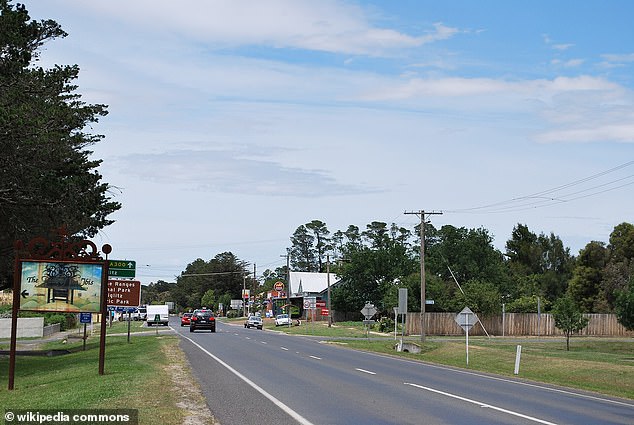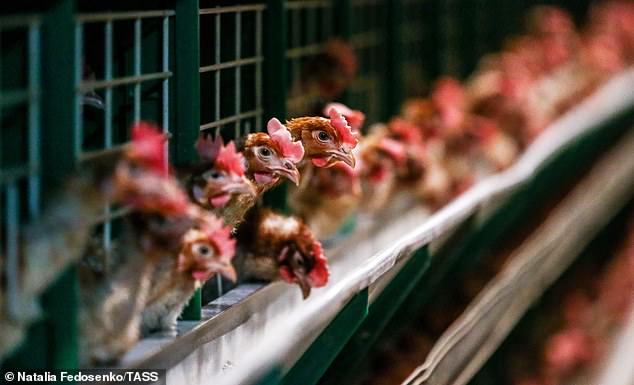Bird flu has been detected at an Australian egg farm, forcing it to remain closed amid fears it could be the strain causing mass poultry deaths around the world and the possible cause of the next global pandemic.
Agriculture Victoria confirmed the presence of bird flu on Wednesday after several poultry deaths at an egg farm near Meredith, about 40 kilometers northwest of Geelong.
The property has been quarantined and Agriculture Victoria staff have arrived to support the business and investigate further.
Samples have been sent to the Australian Disease Preparedness Center in Geelong to determine the strain of the disease, Agriculture Victoria said.
Avian influenza is a highly contagious viral infection that can cause severe symptoms and sudden death in domestic poultry, wiping out entire populations.
Bird flu has been detected at a Victorian egg farm, forcing it to remain closed. The photo shows chickens on an egg farm.
A deadly strain, HPAI clade 2.3.4.4b, has been spreading around the world, causing widespread outbreaks in bird populations and numerous deaths.
It has not yet been detected in Australia, the Department of Agriculture said.
The virus has also spread to mammals, including humans.
Infected people have seen mild symptoms or have been asymptomatic, but some have experienced severe illness.
Bird flu could cause the next pandemic in humans, the US Centers for Disease Control warned.while the H5N1 strain spreading on farms continued to mutate.
In a report released earlier this month, the agency said bird flu viruses “have pandemic potential” in a section on vaccine rollout if there is human contagion.
A Texas dairy farm worker who contracted bird flu from a cow suffered “very mild” symptoms, but the virus caused the blood vessels in his eyes to burst, causing bleeding on the surface of his eyeballs.

Agriculture Victoria confirmed the presence of bird flu on Wednesday after several poultry deaths at an egg farm near Meredith (pictured), about 40 kilometers northwest of Geelong.
The man is only the second person to be diagnosed with bird flu in the United States, and the first in the world believed to have contracted the virus from a mammal.
Nearly 900 people in 23 countries have been infected with the H5N1 strain of bird flu over the past two decades, but all were linked to domestic or wild birds.
Dr. Vivien Dugan, director of the CDC’s flu division, insisted the risk to the general public was still “low.”
But he said repeated infections in livestock suggested the virus could become endemic in the species, raising the risk of H5N1 spreading to humans, who have close contact with the animals.

